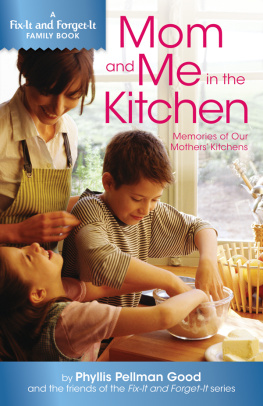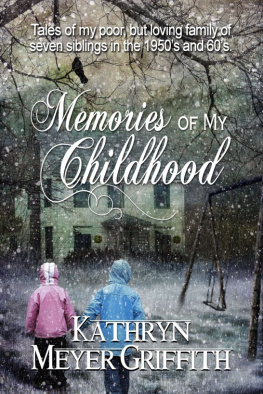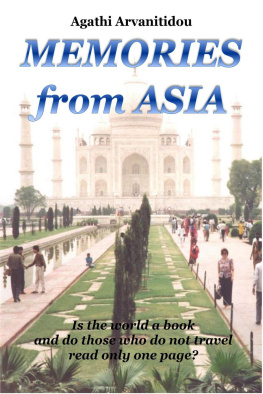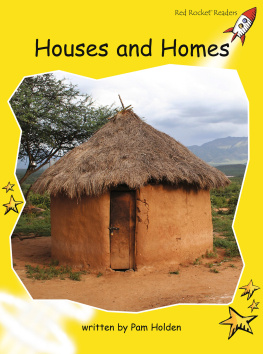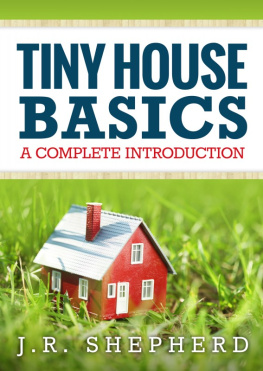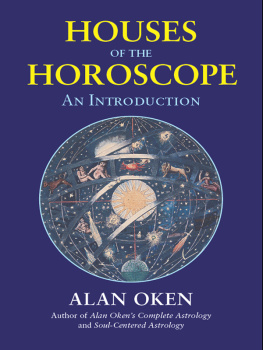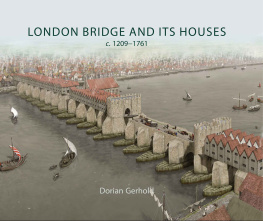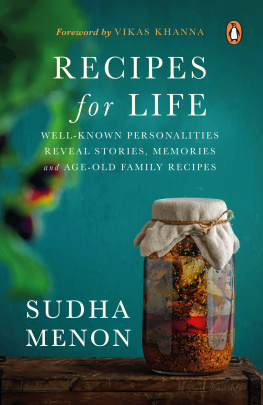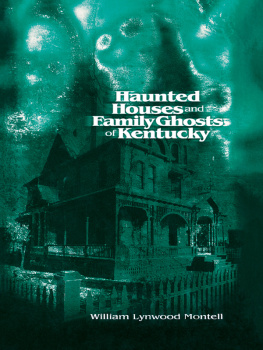R. - Rosamaria’s Memories: My Stories in Countries and Houses
Here you can read online R. - Rosamaria’s Memories: My Stories in Countries and Houses full text of the book (entire story) in english for free. Download pdf and epub, get meaning, cover and reviews about this ebook. year: 2022, genre: Non-fiction. Description of the work, (preface) as well as reviews are available. Best literature library LitArk.com created for fans of good reading and offers a wide selection of genres:
Romance novel
Science fiction
Adventure
Detective
Science
History
Home and family
Prose
Art
Politics
Computer
Non-fiction
Religion
Business
Children
Humor
Choose a favorite category and find really read worthwhile books. Enjoy immersion in the world of imagination, feel the emotions of the characters or learn something new for yourself, make an fascinating discovery.

- Book:Rosamaria’s Memories: My Stories in Countries and Houses
- Author:
- Genre:
- Year:2022
- Rating:5 / 5
- Favourites:Add to favourites
- Your mark:
- 100
- 1
- 2
- 3
- 4
- 5
Rosamaria’s Memories: My Stories in Countries and Houses: summary, description and annotation
We offer to read an annotation, description, summary or preface (depends on what the author of the book "Rosamaria’s Memories: My Stories in Countries and Houses" wrote himself). If you haven't found the necessary information about the book — write in the comments, we will try to find it.
R.: author's other books
Who wrote Rosamaria’s Memories: My Stories in Countries and Houses? Find out the surname, the name of the author of the book and a list of all author's works by series.
Rosamaria’s Memories: My Stories in Countries and Houses — read online for free the complete book (whole text) full work
Below is the text of the book, divided by pages. System saving the place of the last page read, allows you to conveniently read the book "Rosamaria’s Memories: My Stories in Countries and Houses" online for free, without having to search again every time where you left off. Put a bookmark, and you can go to the page where you finished reading at any time.
Font size:
Interval:
Bookmark:
Rosamarias Memories
Rosamarias Memories
My Stories in Countries and Houses
Rosamaria R.

Write My Wrongs Co, United States
www.writemywrongsediting.com
Copyright 2022 Rosamaria R.
All Rights Reserved. No part of this book may be reproduced, stored in a retrieval system, or transmitted by any means, electronic, mechanical, photocopying, recording or otherwise without written permission from the author.
To my children and grandchildren
Contents
io
Introduction
I want everybody to know I have decided to write my memoir because it is fair that my descendants and other relatives know why I came to the United States, why I decided to leave my family, country, and culture and start from scratch in a country I did not know.
When I graduated in Honduras from the Escuela Normal de Seoritas with a degree as an elementary school teacher, I decided to move to Nicaraguamy birth country, where my parents and siblings were residingand start a new life.
Upon arriving there in 1966, I was only eighteen years old. I anticipated support from my parents, and I expected to relate to my siblings, from whom I had been apart for four years. But things were different than what I assumed. My younger sisters Lizzet and Ana Lia were nine and seven years old, respectively, and they barely knew me. There was no relation there. My older brother, Mario, was not going to the Universidad Nacional Autnoma de Nicaragua as I had been told ; he was working, and he did not have a good connection with my father, maybe because of the latters drinking, or maybe because he expected Mario to attend school or university to get a degree. Either way, Mario moved back to Honduras to go to the national university there, to continue his career and become an engineer. My father, being an engineer himself, expected all his children to get a diploma like everybody in his family had. They were all doctors, engineers, or lawyers, and his two sisters were educators. I think that was why I was in a school for girls where the only diploma one could get was as a teacher.
Even when he was drinking, my father would insist on the younger children doing homework, attending school, and being the best they could be. He always said education was the only way to improve my way of living and the one way to survive in the world. Father used to claim that fifty years ago, and I still think he was right.
Lorena, my other sistertwo years youngerwho had graduated from high school in Honduras, was working as a teacher in a public school, and since we had been apart for four years, we were not too close. Hector, the fourth child, was attending high school and was not in good company. His friends were either with or against the new government, and politics was a big topic in those days. The atmosphere was of a new revolution trying to overthrow the present administration. Hectors pals introduced him to habits that put him on the wrong side of the law and have lasted throughout his life. He still drinks and does drugs often.
I thought Nicaragua was better off than Honduras when I arrived. Everybody had jobs. The markets always had plenty of fruits, meat, and vegetables that people needed, and I was surprised to see the majority of the roads paved, something not typical in Honduras. However, propaganda from the people who wanted to overthrow the government claimed the only group making money was the Somozas, the family that had been at the head of the leadership for many years. It was true, but everybody was doing well. It was also true that the Somozas were wealthy, but they did not labor on their farms. The peasants did, and they were happy to have a job. However, when the poor people were promised a part of that fortune by politicians on the side of the party in power, in this case the communists, the peasants believed it, just as it happened in Cuba in the 1950s. Sadly, they did not get any money. The politicians did.
My job as a teacher in private schools in Nicaragua lasted for three years. I also attended a night school for two years to get another diploma as an executive secretary. I do not know if I went to that school to get more education or just to stay out of the house in the evening, when my father either was drinking or drunk already. Many nights, I used to get home at ten oclock. He was usually asleep or in his room at that time.
Financial support from my parents was lacking. My father could hardly keep a job, and my mother was too overwhelmed with meal preparations and the formers drinking. When I started getting pay from my teaching position, my mother asked me to give her half of my income to help with the rent and food.
Since I was nineteen years old, I wanted to go to parties, but my father did not approve. My only option was to attend without his permission. He even objected to my boyfriend and chased him with a machete. There I was, a teacher, almost twenty, not even allowed to go to a party or to have a boyfriend.
Things got worse when I tried to get help from my sister to go on double dates. Since she had a boyfriend and was in cahoots with Hector, she went places all the time. She did not cooperate. I could not even go to the movies because I lacked a chaperone. I had to see my boyfriend in front of my house, given he was not allowed in it at any time.
So, life did not go well at home, but it was better at school. There was a lot of politics among the students. The teaching profession was hard for me. At nineteen, I found teaching fifth grade to be difficult; I had to prepare classes every night, and algebra, geography, and geometry were the most challenging. I even had to get a tutor to help me organize the next days class! So, after thinking it over, that rumor about people from all over the world going to the United States to work did not sound so bad. Those stories started my investigations into the possibilities of going to the US and getting away from all the turmoil in Nicaragua.
I put an ad in a newspaper in Boston, offering my services as a company lady. In those days, Latino and Spanish-speaking women had a good reputation as maids. Thankfully, I got an offer with a visa and a paid ticket. When I went to the embassy to get my visa, the clerk told me it could take up to six months to get a working permit. He also said I should make sure the people making the offer were legit, which worried me.
After talking it over with my fellow instructors at school, I found a girl who had an aunt in Washington, DC. She wrote her a letter and asked if she would be willing to help me find a place to live. We got in touch by mail, and this woman agreed to pick me up at the airport, help me start, and even sponsor my enrollment in school. Her name was Estela Nunez, single, about sixty years old, no relatives. She introduced me as her niece.
I came with a visitors visa and changed to a student one after I enrolled in a school approved by the government to grant permits to foreign students. Even though my stay in that school lasted for only one year, it helped a lot with my English and learning about the history and culture of the people in the United States.
When I came to the USA, I was sure I would never return to Nicaragua. Things had gotten worse since I left, and even my parents moved back to Honduras within three years. The communists took over, and the government was toppled.
Anastasio Somoza was assassinated in Paraguay, where he was exiled.
My father did not want me to come to the States, and at twenty, I was considered a minor. I could not leave without his permission. So, I waited until turning twenty-one and applied for my passport in November 1969. The same day I got the passport, I went to the American embassy in Managua to get the visitors visa. After getting the permit and buying the ticket, I left on December 19, 1969, one month after my twenty-first birthday.
Next pageFont size:
Interval:
Bookmark:
Similar books «Rosamaria’s Memories: My Stories in Countries and Houses»
Look at similar books to Rosamaria’s Memories: My Stories in Countries and Houses. We have selected literature similar in name and meaning in the hope of providing readers with more options to find new, interesting, not yet read works.
Discussion, reviews of the book Rosamaria’s Memories: My Stories in Countries and Houses and just readers' own opinions. Leave your comments, write what you think about the work, its meaning or the main characters. Specify what exactly you liked and what you didn't like, and why you think so.

